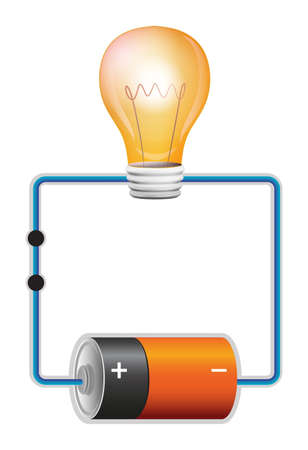Section outline
-
Mentoring:
Please reach out to me when convenient via Email or WhatsApp if you need assistance - it may be related to academic activities, personal help, or career-related queries.
Course Objectives:
- To introduce fundamental theory for electrical circuits
- To understand basic analysis theories of electrical circuits.
- To be able to solve electrical DC circuits mathematically.
- To analyze DC circuits to solve them in a simplified form.
- To analyze single-phase and three-phase AC circuits to solve them in a simplified form.
- To analyze magnetic circuits to solve them in a simplified form.
- Understanding the principles and working of a Transformer.
- Understand the principles and working of AC and DC Machines.
Course Outcomes:
- To learn about the electrical circuit variables, laws, and theorems for circuit analysis.
- To understand the basic working principle of various energy storage devices like capacitors and inductors used in electrical circuits.
- To learn to apply laws and theorems to solve DC and AC circuits.
- To make students understand the operation and terminal characteristics of basic electronic devices like diodes, BJTs, and MOSFETs.
- To give the students basic knowledge on the construction and working principle of transformer, induction motor and induction generator.
Assessment Plan & Grading:

Assessment Instructions:
The total performance of a student will be assessed based on a scheme of assessment strategies. Both formative assessment (attendance, quizzes, assignments, presentation etc.) and summative evaluation (mid-term and final examination) strategies will be followed. Thirty five percent (35%) of total marks will be allotted for formative assessment and the remainder of the marks will be allotted to summative evaluation- twenty five percent (25%) for mid-term examination and forty percent (40%) for final examination. Assessment and evaluation strategies are described in the following sections-
Attendance
All students are expected to attend classes regularly and actively participate in class discussions or other class activities. Attendance is necessary for effective learning. Class attendance is worth seven percent (7%) of total marks and students will be required to attend all the classes held in this course to achieve full marks. Marks will proportionally be reduced with respect to total classes for being absent.
Quizzes
Altogether 4 quizzes will be taken during the semester, 2 quizzes will be taken before midterm and 2 quizzes will be taken after midterm. Best 3 out of 4 quizzes will be considered for awarding grade. Quizzes are worth fifteen percent (15%) of total marks and students are strongly recommended not to miss any quizzes. Note that quizzes cannot be made up if missed for any reason.
Assignment
Two assignments will be collected in this course- one before mid-term examination and one before final examination. The homework problems posted under each module will be the topics of the assignments. The problems are structured to challenge the students to apply the fundamentals and concepts learned in the classroom to solve engineering problems. Assignments are worth five percent (5%) of the total marks and each assignment carries equal weightage. Assignments must be done individually and must be submitted on or before the due date. No late submission of assignments will be accepted.
Presentation
The presentation will be on the topics of “Electrical devices or machines” and “Working principle of electrical machines”. The students will be required to visit the laboratory to observe “electrical devices” and “working principle of electrical machines”. During laboratory visit students should apply their classroom learning to acquire sufficient information on the assigned topics and present their observation at the final week of the semester. The presentation can be done in a group consisting of 5 students. It is important that all the students in a group play an equal role in completing the presentation. This should be a PowerPoint presentation and each group will have 5 minutes to present. The presentation is worth eight percent (8%) of the total marks.
Mid-Term Examination
The mid-term examination will include course content covered up to 8th week of the semester. The duration of the examination will be 90 minutes and will be held as announced in the academic calendar by the university. The final date and time will be confirmed later by the examination routine published by the department. The mid-term examination is worth twenty five percent (25%) of total marks.
Final Examination
The final examination will include course content covered up to 18th week (after mi-term) of the semester. The course material covered in mid-term examination won't be examined in the final examination. The duration of the examination will be 120 minutes and will be held as announced in the academic calendar by the university. The final date and time will be confirmed later by the examination routine published by the department. The final examination is worth forty percent (40%) of total marks.
Text and Reference Books:
- [TEXTBOOK] Fundamentals of Electric Circuits (5th Ed) by Mathew Sadiku
- [SOLUTION MANUAL] Fundamentals of Electric Circuits (5th Ed) by Mathew Sadiku
- [REFERENCE] Introductory Circuit Analysis, 10th Edition - (Robert L. Boylestad)
- [SOLUTION MANUAL] Introductory Circuit Analysis, 10th Edition - (Robert L. Boylestad)
- [REFERENCE] Electric Circuits 9th-ed. - (J. Nilsson, S. Riedel)

-
Please post any query here. I want everyone to engage in an interactive discussion and help each other in solving problems.
Remember - “While we teach, we learn,” said the Roman philosopher Seneca.
